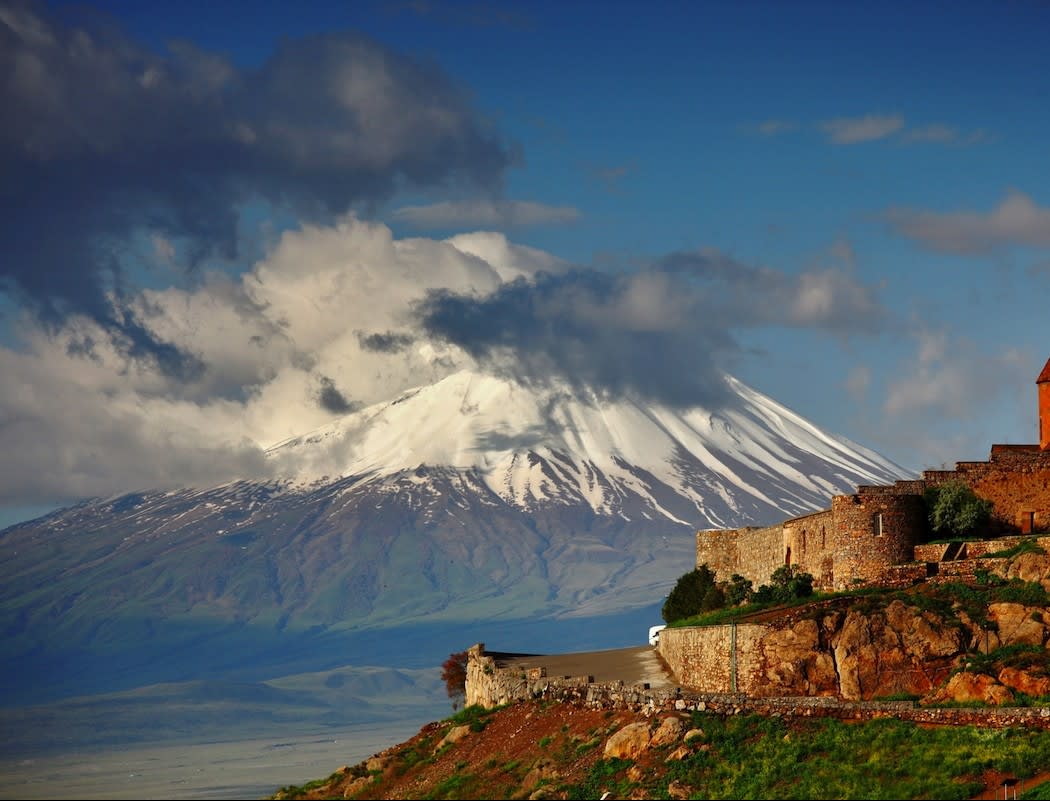Bordered by Georgia (the one Stalin came from, not the one Scarlett O’Hara came from), Azerbaijan, Turkey and Iran, and located between the Black and Caspian Seas, the former Soviet republic of Armenia, independent since 1991, has become the latest country to produce kosher products certified by the Orthodox Union.
When I received a call from Rabbi Nachum Rabinowitz, head of the OU European Desk, to go to Armenia, I was on the one hand slightly skeptical, not knowing what to expect, and on the other looking forward to add the stamps to my passport.
Therefore, in July last year I flew from Vienna (having just done some regular visits there) to Yerevan, the capital of Armenia, arriving at 4.30 a.m. (they are three hours ahead of Central European time).
By doing so, I stepped into a country where there has been a Jewish presence at least since the first century BCE and where some 800 Jews live now, with their community officially recognized in 1991 by the government. Conversely, there has been an Armenian presence in Israel since the time of the Roman Emperor Titus, so much so that since the 14th century an Armenian Quarter has existed in the Old City of Jerusalem near the Jaffa Gate. Approximately 2,500 Armenians live in Jerusalem, with 1,500 residing elsewhere in the country.
So producing kosher food in Armenia is not as strange as it sounds. The Chief Rabbi, Gersh Meir Burshtein, has worked tirelessly to make sure that kosher food is available for Armenian Jews to eat and in the process, to build a kosher industry for export. That’s how I came to be there.
I actually went to Armenia to do three initial inspections — at Waterlok LLC and SIS Natural, in Yerevan, the capital; and at Proshyan, in Yerevan and in Artashat, a 30-minute drive away.
All the plant personnel I met were both friendly and helpful. I met with Chief Rabbi Burshtein, who assisted in my visits and will be continuing the supervision there, as the OU representative. The three companies were enthusiastic about getting kosher supervision and especially in being able to attain the OU’s high standard of certification.
Waterlok produces bottled still and sparkling water. We met with the president of the company, Mr. Antonyan, as well as Mr. Janiachian, who is in charge of international relations. The plant prides itself on its modern equipment and in exporting its product to the United States.
SIS Natural produces high quality fruit juices, jams and preserves. At its plant we met with the director Mr. Armen Haobyan and with Mrs. Ruzanna Navasardyn, quality manager. Most of their products are made from fresh fruits grown in the area by contracted farmers under the guidance of SIS. The fruits are of excellent quality and are indeed tasty.
The next day, at Proshyan, we met with the director, Mr. Armen Gasparyan and the export manager Mrs. Lilit Avetisyan, who were both very helpful. On the way to Artashat, in the distance we passed high mountains which are called Ararat and which the Armenians claim to be the Biblical Mt. Ararat where Noah’s ark came to rest.
In Artashat the company produces pomegranate wine, both of the semi-dry and semi-sweet varieties, made from fresh Armenian pomegranates. In Artashat they produce in bulk and then ship the product by truck to the Yerevan plant. In Yerevan pomegranate vodka and pomegranate liqueur are also produced, using the pomegranate wine made in Artashat and distilling it, resulting in a high-quality product. The company is in the process of installing a new automated bottling line.
The Armenians’ pride and enthusiasm in being able to attain OU certification was constantly communicated to me in each of the plants I visited. And I left with a nice keep-sake to remind me of my Armenian visit. Proshyan gave me a souvenir wine bottle shaped like the menorah from the Temple in Jerusalem.
Reprinted with permission from Behind the Union Symbol (Spring 2010)
The words of this author reflect his/her own opinions and do not necessarily represent the official position of the Orthodox Union.




